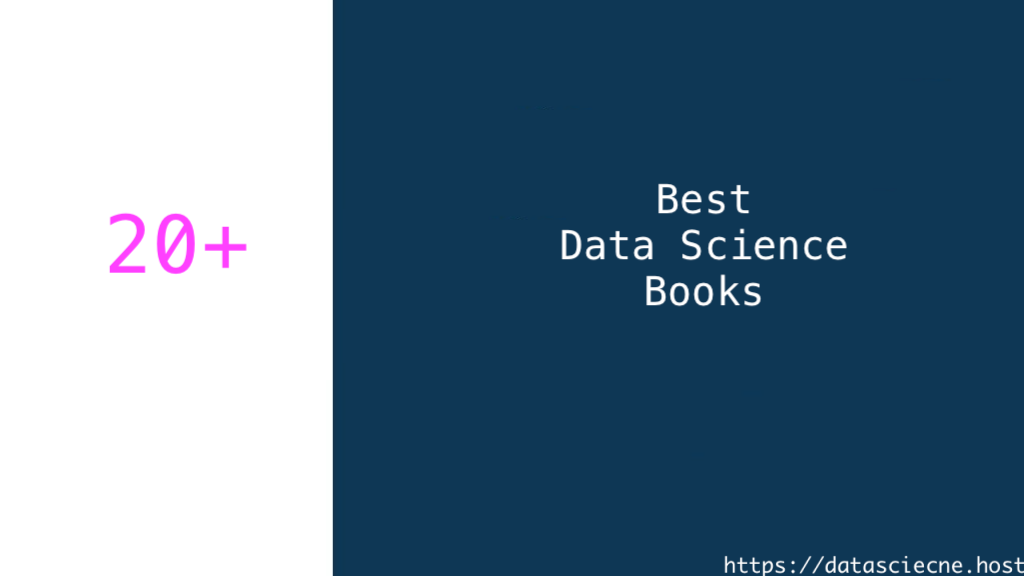Data science is rapidly transforming the way we work, live and interact with information. As businesses and organizations increasingly rely on data-driven insights, the demand for skilled data science professionals continues to soar. However, embarking on a journey into this field can be daunting, especially for those new to the subject.
Books have always been a valuable resource for learning new skills and concepts, and data science is no exception. With countless titles available, it can be challenging to determine which books are truly worth your time and investment. Our aims to guide readers in selecting the best data science books to accompany them on their learning journey, whether they are just starting out or looking to deepen their existing knowledge.
Categorizing Data Science Books
To help readers navigate the vast array of data science books. it’s useful to categorize them based on skill level and area of focus. Here’s a breakdown of these categories:
Skill Level:
- Beginner
- Intermediate
- Advanced
Area of Focus:
- Programming for Data Science (Python, R)
- Statistics & Probability Fundamentals
- Machine Learning
- Data Visualization
- Data Wrangling & Cleaning
- Big Data & Cloud Platforms
- Soft Skills (Communication, Storytelling with Data)
By understanding these categories, readers can better identify the books that align with their current skill level and specific areas of interest within data science.
Top Book Recommendations (with blurbs)
Beginners (Focus on foundational concepts and basic tools):
- “Python for Data Analysis” by Wes McKinney: This book introduces readers to the world of data analysis using Python, covering essential libraries like NumPy, Pandas, and IPython. It provides a solid foundation for working with structured and unstructured data, making it an excellent starting point for beginners.
- “Data Science for Dummies” by Lillian Pierson: As the name suggests, this book is designed for absolute beginners, offering a comprehensive overview of data science concepts and methodologies. It covers topics like data mining, machine learning, and data visualization in an accessible and engaging manner.
- “Think Stats” by Allen B. Downey: For those seeking to strengthen their statistical foundations, “Think Stats” is an invaluable resource. It introduces key statistical concepts through practical examples and exercises, helping readers develop a deeper understanding of data analysis techniques.
Intermediate Learners (Focus on applying techniques and building projects):
- “Hands-On Machine Learning with Scikit-Learn” by Aurelien Geron: This book provides a practical, project-based approach to machine learning using the popular Scikit-Learn library in Python. It covers a wide range of algorithms and techniques, making it an excellent resource for those looking to build real-world machine learning applications.
- “R for Data Science” by Hadley Wickham: If you prefer working with R, this book is an essential guide. It covers the entire data science process, from data wrangling and visualization to modeling and communication, using the powerful tidyverse suite of packages.
- “Storytelling with Data” by Cole Nussbaumer Knaflic: While not directly focused on technical aspects, this book offers valuable insights into effectively communicating data insights through storytelling. It’s a must-read for data science professionals who want to present their findings in a compelling and impactful manner.
For Advanced Learners (Deep dives into specific topics and problem-solving):
- “Deep Learning with Python” by François Chollet: Written by the creator of the Keras library, this book provides a comprehensive introduction to deep learning, covering both theoretical concepts and practical applications using Python.
- “Pattern Recognition and Machine Learning” by Christopher Bishop: This advanced text delves deep into the mathematical foundations of machine learning, making it a valuable resource for those seeking a rigorous understanding of the field.
- “The Art of Data Science” by David Spiegelhalter: This book explores the intersection of statistics, data analysis, and problem-solving, offering insights and case studies from a wide range of disciplines. It’s an excellent choice for those looking to broaden their perspective on data science.
Conclusion
Choosing the right data science books can greatly enhance your learning journey and provide a solid foundation for success in this rapidly evolving field. Whether you’re a beginner seeking to grasp the fundamentals or an advanced learner looking to deepen your expertise, the titles recommended in this blog offer valuable insights and practical guidance.
Remember, books are just one of many resources available to data science learners. Embrace a multifaceted approach by exploring online courses, tutorials, and hands-on projects to reinforce your learning. Additionally, the Learn Data Science site offers a wealth of resources, including courses, tutorials, and a supportive community to assist you on your path to becoming a skilled data science professional.
